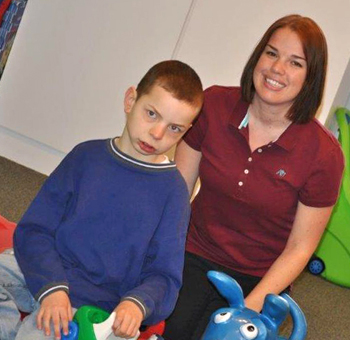
|
Pediatric Occupational, Physical, ABA/Behavioral, Feeding, Speech, and Language Therapies Main Clinic: 931-372-2567 1445 East 10th Street Cookeville, TN 38501 Email: [email protected] HIPAA Secure Email: [email protected] Fax: (931) 372-2572 ABA Clinic: 931-201-9534 400 Dubois Road Cookeville, TN 38501 Email: [email protected] Please call today to get started! Most insurances accepted! |

|
| Who needs therapy? | SE HABLA ESPAÑOL |
Sleep Issues
Sensory Processing Issues = Sleeping Issues
Did you know that the average person falls asleep within 15 minutes of going to bed?
There shouldn't be a turned upside down bed either after a nights sleep!
Many children with ADHD, Autism, and other disorders do not get into deep sleep or good sleep wake patterns. The two most common problems listed by those with sensory modulation disorder are difficulty calming enough to get to sleep and difficulty getting to, or staying in the "quenching" stages of sleep.
Sensory integration therapy impacts the sleep issue, but the following tools can be supports until the time that integration has occurred. It is important to use sensory routines and tools that are a match for that particular individual's sensory system.
What is most important is to treat the cause of the sleep disorder such as getting an Occupational Therapy evaluation to look at sensory issues, getting a sleep study done by Pediatric Trained professionals, and looking at food sensitivities for example.
Some quick helpers until then:
*Having a consistent bedtime routine can alone provide comfort in its predictability!
*Most people find a warm bath 1.5 hours before bedtime relaxing using Epsom Salts and calming essential oils, let a large wet and warm towel drape over their body, head, shoulders, etc. for the weighted pressure that is calming.
*Many children need white noise in their room to help create a filter, sound machines that have a "static" like sound help, the Abilitations Integrations catalog also sells: The Mozart Effect Relax, Daydream And Draw (see Integrations catalog) has been a lifesaver for many parents that have spent over 1-1/2 hours trying to get children asleep each night.
* TOTAL DARK- many children need total darkness in a room to sleep well.
*Tucking children in or using weighted blankets is also a form of "swaddling" that utilizes comforting touch input.
*Natural sleep supplements can be discussed with your biomedical doctor.
*NO LIGHTS in the room and no electronics within 2 hours of bed time, the blue light decreases natural Melatonin production.
*Vitamin D, daily outdoor play and sunshine!
Site empowered by
WebOnTheFly